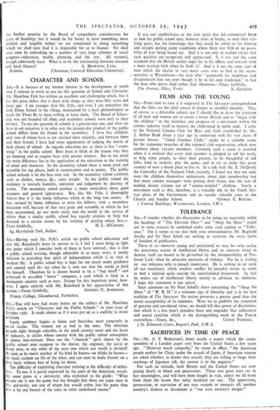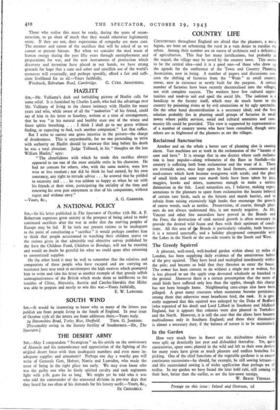SACRIFICES IN TIME OF PEACE
Sta„—Mr. A. F. Robertson's letter recalls a report which the corre- spondent of a London paper sent from the United States a few years ago. "However much sympathy," he wrote in effect, " the American people profess for China under the assault of japan, if American women are asked whether, to hinder that assault, they are willing to forgo their stockings of Japanese silk, the answer is in the negative."
For such an attitude, both Britain and the United States are now paying dearly in blood and possessions. These two great wars are in fact meaningless, and will have been fought in vain, unless we all learn from them the lesson that today mankind are one. The oppression, persecution, or starvation of any race wounds or menaces all; another country's distress or discontent is "our own country's danger." Those who realise this must be ready, during the years of recon- struction, to go short of much that they would otherwise legitimately enjoy. If they are not, their expressions of sympathy are mere cant. The -manner and extent of the sacrifices that will be asked of us we cannot at present foresee. But when we consider the mad waste of human energy during the past fifty years through unemployment and preparations for war, and the new instruments of production which discovery and invention have placed in our hands, we have strong grounds for hope that a sane and sober and unselfish use of the world's resources will eventually, and perhaps speedily, afford a fair and suffi- cient livelihood for us all.—Yours faithfully,
Windrush, Babraham Road, Cambridge. G. CYRIL ARMSTRONG.



























 Previous page
Previous page